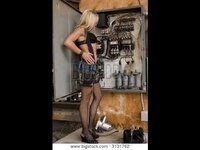I know most "modern" homes have the neutral bus tied to ground directly. Ah, that makes sense how some dryers are 3 prong. And how they can get 120 for the electronics (one leg and ground). Thanks man, it's been a while since I took an electrical class (GRCC in 1999).
Yeah, in electrical panels, the neutral bus will always be bonded (connected) to the ground bus. So ultimately, the neutral and the ground are common at the panel.
Happy to help, at least within the bounds of my knowledge. I did more commercial/industrial work where we worked with 3-phase electrical systems with single hot lines as high as 277vac to ground, and phase to phase at 480vac. Residential is a little bit different as it's not 3-phase, but the basic principles are the same.












